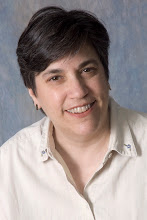Each year I send out a reminder
about items that you need to review prior to December 31st to ensure that you minimize
the tax owing to CRA. This year's list includes the following items
1. Non-eligible Dividends - Starting in 2014, the federal government will be changing the personal tax calculation for non-eligible dividends. As a result of changes to the gross-up rate and DTC rate on non-eligible dividends, the marginal tax rates on these dividends will be going up in 2014. The top combined federal/provincial marginal tax rates for non-eligible dividends are expected to increase 3.6 percentage points for Ontario residents in 2014.
2. Canada Pension Plan (CPP) Retirement Benefits - If you are between ages 60 and 64 in 2013 and are considering taking CPP pension benefits prior to age 65, you may wish to apply by December 31, 2013. If you start CPP benefits in 2013, your pension will be reduced by a “downward monthly adjustment factor” of 0.54% for each month before age 65 that you began receiving it. Starting in 2014, however, the downward monthly adjustment factor will increase to 0.56% (and will gradually continue increasing to 0.6% by 2016), thus decreasing your CPP pension.
3. Charitable donations - This year saw the introduction of the new Federal First-Time Donor’s Super Credit (FDSC), which was announced in the March federal budget. You can claim this credit if neither you nor your spouse or common-law partner has claimed the charitable donations tax credit in any of the five preceding tax years, from 2008 to 2012. The FDSC, which can be claimed once from the 2013 to 2017 taxation years, provides an additional 25% tax credit on total monetary donations up to $1,000 that are made after March 20, 2013. When added to the regular federal charitable donations tax credit, tax savings would be 40% for total monetary donations up to $200, and 54% for total monetary donations between $200 and $1,000. December 31 is the last day to make a donation and get a tax receipt for 2013.
4. Tax Free Savings Plan (TFSA) – Planning to take money from your TFSA soon? Withdraw the amount before year-end, so you’re able to re-contribute as soon as Jan. 2, 2014. At that time, you’ll have $5500 of new TFSA contribution room, plus whatever amount you withdrew. On the other hand, if you wait until January 2014 to withdraw, you’ll have to wait until 2015
5. Tax-Loss Selling - Tax-loss selling involves selling investments with accrued losses at year end to offset capital gains realized elsewhere in your portfolio. Any capital losses that cannot be used currently may either be carried back three years or carried forward indefinitely to offset capital gains in other years. Note that if you purchased securities in a foreign currency, the gain or loss may be larger or smaller than you anticipated once you take the foreign exchange component into account. In order for your loss to be immediately available for 2013 (or one of the prior three years), the settlement must take place in 2013, which means the trade date must be no later than December 24, 2013.
6. RRSP Contributions -Although you have until March 3, 2014 to make RRSP contributions for the 2013 tax year, contributions made as early as possible will maximize tax-deferred growth. If you have maximized RRSP contributions in previous years, your 2013 RRSP contribution room is limited to 18% of income earned in 2012, with a maximum contribution of $23,820, less any pension adjustment.
7. Registered Disability Savings Plans (RDSPs) - RDSPs are tax-deferred savings plans open to Canadian residents eligible for the Disability Tax Credit, their parents and other eligible contributors. Up to $200,000 can be contributed to the plan until the beneficiary turns 59, with no annual contribution limits. While contributions are not tax deductible, all earnings and growth accrue on a tax-deferred basis. Federal government assistance in the form of matching Canada Disability Savings Grants (CDSGs) and Canada Disability Savings Bonds (CDSBs) may be deposited directly into the plan up until the year the beneficiary turns 49. The government will contribute up to a maximum of $3,500 CDSG and $1,000 CDSB per year of eligibility, depending on the net income of the beneficiary’s family. Note: since unused CDSG and CDSB room can be carried forward for up to ten years.
8. Fees: Remember to pay all investment management fees, tuition fees, safe deposit box fees, accounting and legal fees if deductible, childcare expenses, alimony, medical expenses and any business expenses by December 31 if your intent is to deduct them on your 2013 tax return.
Tax
strategies should be reviewed by a qualified tax specialist and, where
appropriate, your investment adviser, to ensure all appropriate regulations,
laws and individual personal considerations are taken into count.



